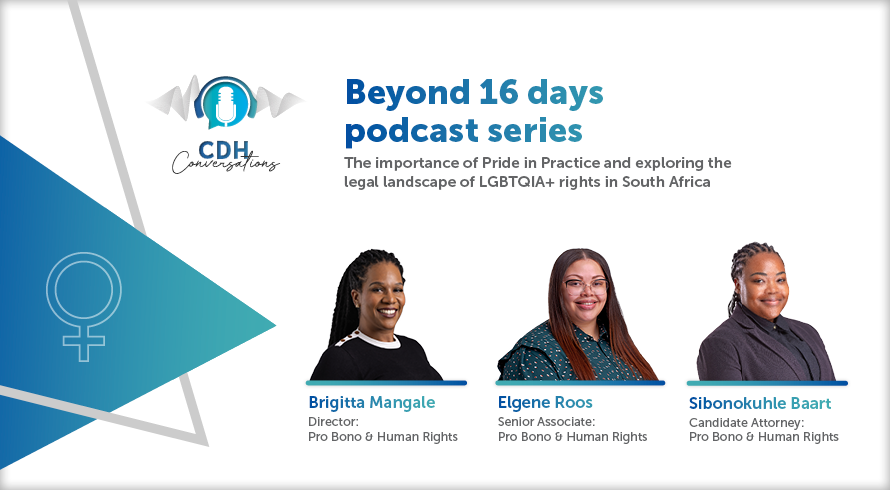Women partners of DLA Piper Africa share their experiences as African lawyers
Working in Africa, more than anywhere else, is about relationships. Cold bidding does not usually work and because of this, the most successful lawyers are always prepared to be away from home for long periods of time to forge these relationships.
This is according to Claire Barclay, a Director in the Projects and Infrastructure practice at Cliffe Dekker Hofmeyr in South Africa, who says that the extensive travel required when working in a thriving African legal practice, across numerous jurisdictions, can prove more challenging for women with families, and especially young families.
“Despite Africa’s diversity of cultures and religion, however, I have not experienced any particular bias toward me from African clients because I am a woman. Gender bias in a professional context does not seem to resonate culturally.”
Priscilla Pattoo, a Partner at Juristconsult Chambers in Mauritius, agrees that being a woman with a family in the legal profession can prove difficult.
“Being a woman at the beginning of my career was not so hard, but then, I became a wife and a mother, and the story changed. I had to strive hard to find an equilibrium between being a mother present for her children and being present at work. “Flexible hours” was not a concept wholly accepted by my peers. As time passed, I proved that such a balance was possible - I am now a partner in my firm and a proud, fulfilled mother of two children!” says Pattoo.
Anne Shilengudwa, a Director at ESI Namibia, notes that there are issues to overcome for women in the legal profession.
“Being the only black female director among four white males in one of the top commercial law firms in Namibia is not always easy, but as I have matured, I have learnt to combine my emotional and intellectual intelligence, to observe a situation, and to instinctively know when to move forward, take a step back, or change it.”
“I have also learnt to use my character, skills and knowledge in a way that is comfortable for everyone in my environment, without losing my sense of self,” she explains.
“It is important for us lawyers to learn how to strike a balance between office and family life, as well as having excellent time management skills,” Shilengudwa says.
Fatima-Zohra Bouchemla, Avocat Associé agréé à la Cour Suprême, at BL&Associés in Algeria, says that in terms of equality, the path is still long for the women of the Middle East and North Africa (MENA) region.
“The World Economic Forum (WEF) has just published, "The Gender Global Gap Report 2013”', and the result is not too good for the countries of the Maghreb. However, as a female lawyer in Algeria, I have to say that I’ve never noticed any differences between women and men in judicial proceedings. I think that the Algerian woman, in general, knows how to impose herself in all areas, and at all levels, with her leading skills,” she notes.
Ekua Hayfron-Benjamin, Partner at Reindorf Chambers in Ghana, says that being a woman in private legal practice in Ghana poses few or little challenges for women in the profession.
“The country has had a woman attorney-general, a woman speaker of the house and currently the chief justice is a woman. Women are taken very seriously in the legal system by both the judges and other lawyers, as well as by clients. There are a few all-women law firms and Reindorf Chambers itself has seven female and three male lawyers.
“The challenge women face is in balancing domestic life with work, it is still traditional for predominantly women in Ghana to look after the home and the children.
“Women that I have spoken to in the corporate world continue to encounter the glass ceiling, but this does not appear to be the experience of those in private legal practice in Ghana,” Hayfron-Benjamin says.
Jay Govender, a Director in the Projects and Infrastructure practice at Cliffe Dekker Hofmeyr notes that by virtue of practising in the Projects and Infrastructure space, she has been fortunate enough to undertake a fair amount of project, regulatory and energy work in Africa. Infrastructure expansion is a key driver for economic growth on the continent, making Africa an exciting and stimulating working environment for any legal professional.
“Over the years I have seen an increase in the number of strong and highly competent women who hold high profile positions in the private sector and within government institutions. A career as an African lawyer is no more or less challenging to a woman than it is to a man. Expertise and competence will always remain the recipe for long standing success in the legal profession. These attributes are not gender specific,” she adds.
The information and material published on this website is provided for general purposes only and does not constitute legal advice. We make every effort to ensure that the content is updated regularly and to offer the most current and accurate information. Please consult one of our lawyers on any specific legal problem or matter. We accept no responsibility for any loss or damage, whether direct or consequential, which may arise from reliance on the information contained in these pages. Please refer to our full terms and conditions. Copyright © 2026 Cliffe Dekker Hofmeyr. All rights reserved. For permission to reproduce an article or publication, please contact us cliffedekkerhofmeyr@cdhlegal.com.
Subscribe
We support our clients’ strategic and operational needs by offering innovative, integrated and high quality thought leadership. To stay up to date on the latest legal developments that may potentially impact your business, subscribe to our alerts, seminar and webinar invitations.
Subscribe




